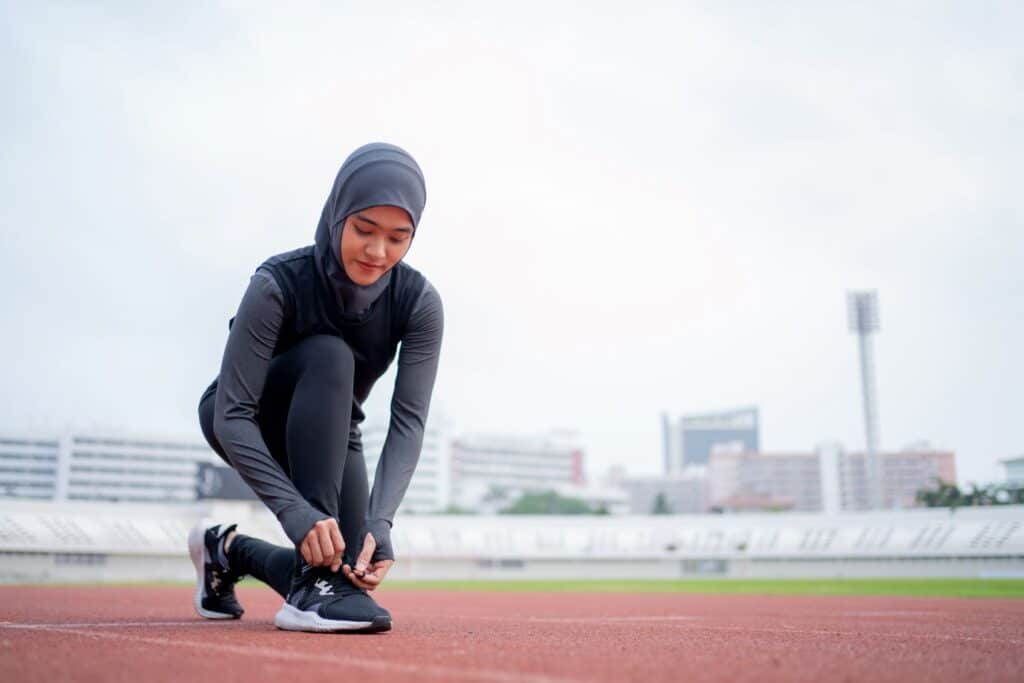France has banned its female athletes from wearing the hijab while competing in the upcoming Olympics and Paralympics in Paris, sparking outrage from human rights groups who say it is a form of “racist gender discrimination”.
In September, French Sport Minister Amelie Oudea-Castera said that French athletes would not be permitted to wear the hijab or any other religious headwear during the Paris Games. She said it was to respect the principles of secularism.
Similar bans on hijabs are already in place across multiple domestic sporting codes in France.
Now, Amnesty International is calling the hijab ban a breach of international human rights law, saying it exposes France’s discriminatory policies and also the weakness of the International Olympic Committee’s response to the issue.
“Banning French athletes from competing with sports hijabs at the Olympic and Paralympic Games makes a mockery of claims that Paris 2024 is the first Gender Equal Olympics and lays bare the racist gender discrimination that underpins access to sport in France,” said Anna Błuś, Amnesty International’s Women’s Rights Researcher in Europe.
“Discriminatory rules policing what women wear are a violation of Muslim women’s and girls’ human rights and have a devastating impact on their participation in sport, blocking efforts to make sports more inclusive and more accessible,” Błuś said.
Amnesty International’s criticism comes in the form of a 32-page report that details the impact that hijab bans have on Muslim women and girls in French sport.
The research found out of 38 European countries, France is the only country to place a ban on religious headwear in sports.
Athletes representing French national teams are considered public servants by authorities and are ordered to respect ideals of secularity and neutrality. Amnesty International says this is not a legitimate reason for imposing restrictions on freedom of expression and/or freedom of religion.
After it was confirmed that France would enforce a hijab ban for its athletes at the Olympics, the United Nations also criticised the decision, with a spokesperson saying: “no one should impose on a woman what she needs to wear, or not wear.”
In Amnesty International’s report, Hélène Bâ, who hasn’t been allowed to compete in basketball since October 2023 due to her sport’s hijab ban said: “Mentally it is also hard because you really feel excluded…Especially if you go to the bench and the referee tells you to go to the ladders [stands]. Everyone sees you…it’s a walk of shame.”
Bâ said the ban was “a clear violation of the Olympic charter, values and provisions, and an infringement on our fundamental rights and freedoms…I think it’s going to be a shameful moment for France.”
In June, members of the Sport & Rights Alliance and Basket Pour Toutes published a letter written to the International Olympic Committee about the ban. It demanded the committee publicly call on France to overturn its ban on athletes wearing the hijab in French sport, and at the Olympics.
The International Olympic Committee responded to the letter, writing that the issue was beyond its remit. It said: “freedom of religion is interpreted in many different ways by sovereign states” and noted that in the Olympic Village and Olympic venues, IOC rules apply, meaning there are no restrictions on wearing the hijab.


